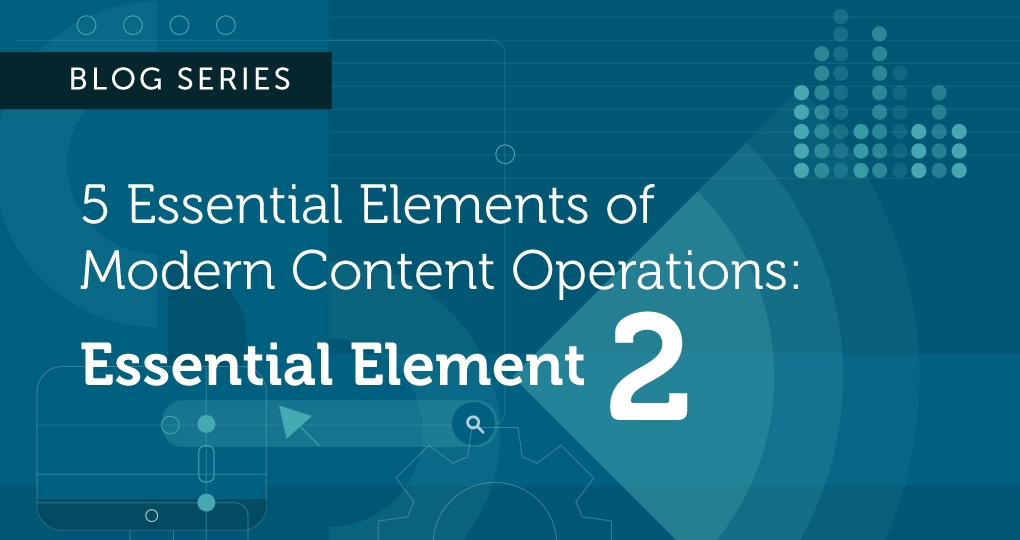Are you delivering personalized, omnichannel experiences at every customer touchpoint? If the answer is “no,” there are undoubtedly several factors impacting the ability to scale your content operations, from manual processes and cumbersome review cycles to difficulty locating assets and meeting compliance requirements.
However personalization is essential to competing and winning in today’s fast-paced world where customers want and expect a customized experience. You need to digitally transform the upstream and downstream processes of the customer experience from brainstorming and kick-off, through design and delivery of content, all the way to reporting on performance to create a sustainable and seamless experience across every customer touchpoint. The key to achieving this operational agility is intelligent automation.
Automation is essential to the modern content lifecycle and digital supply chain. From content planning to production to delivery, you need the ability to automate repetitive tasks so you can speed up output without compromising quality. Automation also helps avoid the duplication of assets across domains, increasing time to market by eliminating the need to upload content manually to different channels or platforms.
Intelligent automation for content operations delivers three key benefits to today’s modern marketing organization:
- Automated Project Management
Eliminates manual work wherever possible with automatically expanding and contracting project timelines and intelligent task routing. - Improved Asset Findability
Makes it easier and faster to find content with AI-generated smart tags, descriptions, and more. - Maximized Asset Reuse
Encourages content reuse by allowing AI to suggest existing content to repurpose before a new request is made.

Automation is a strategic imperative for content operations
Customer personalization is a top strategic priority for many businesses. But developing and delivering content to support personalized experiences can cripple your team’s efficiency, workflows, and content lifecycle. Today’s marketers are faced with myriad internal and external challenges and often don’t have the time or resources to reach their full potential. Taking back control of an often chaotic internal process is critical for brands that compete mostly on content quality and customer experience. Intelligent automation is a top strategic imperative for organizations. It enables them to streamline and scale decision-making, simplify processes, free up resources, and improve operational efficiencies.
“In the future, humans won’t create all the content themselves. They’ll slowly hand off that responsibility to machines, especially for rote and mundane content creation . . . Content automation at scale will help brands meet omnichannel personalization goals and create enhanced customer experiences.”

How artificial intelligence for DAM fast-tracks content operations
AI for DAM relieves customers from the manual, time-consuming work that often plagues the content lifecycle. It helps content, creative, and management teams focus on collaboration and the work that drives real value. In addition to helping automate project management tasks, improving asset discoverability, and maximizing asset reuse, AI for DAM can learn over time, continuously improving to make more accurate decisions based on your unique business needs.
A Digital Asset Management (DAM) with intelligent automation should include the following key capabilities:
- Intelligent Workflows: Create multi-path, sequential workflows that route work to the appropriate teams at the right moments and expand and contract, even if the scope changes after work begins.
- Ability to Avoid Bottlenecks: Keep your projects on schedule with intelligent workflows that don’t require a project manager to move projects forward or ensure work is always routed to the right person.

- Smart Content Personalization: Automatically send metadata-enriched tags to personalization engines that can then match content with the right, targeted persona.
- Auto-Cropping: Automate image cropping to avoid the back and forth with designers and ensure your images are always formatted for the right channels.
- Learned AI Cropping: Teach AI to understand your unique brand and product characteristics so they remain the focus of any cropped image suggestion.
- Smart Tagging: AI creates descriptive tags and visual descriptions of assets upon upload to improve findability and reuse.
- Learned AI Tagging: Train AI to learn your company-specific terms, brand, or product characteristics and create custom tags.
- Visually Similar Assets: Search for and view all visually similar images and faces of an asset.
- Search on Speech in Video: Search for fragments of speech to find a video – speech-to-text transcriptions can be shown as subtitles, ingested as metadata, and are fully searchable.
- Optical Character Recognition (OCR): AI automatically extracts and stores credits and written text in videos and images to improve findability.
“Aprimo’s product vision, which is underpinned by AI and content atomization [modular content] and aims to support the full lifecycle of content performance — from creative effort all the way through downstream performance — stands out.”
Forrester Wave for DAM
Taking back control of an often chaotic internal process is critical for brands who must compete on customer experience. With intelligent automation, marketers can evolve their capabilities to manage and execute the content lifecycle easier, faster, and at scale.
Read the third blog in this series to learn the importance of metadata for:
- Unlocking content to business users through optimized searchability
- Automating rules and processes to streamline operations
- Boosting asset reuse to improve productivity and maximize your investment
Download our eBook, 5 Essential Elements of Modern Content Operations, to learn more about how you can unleash the power of your omnichannel content.


